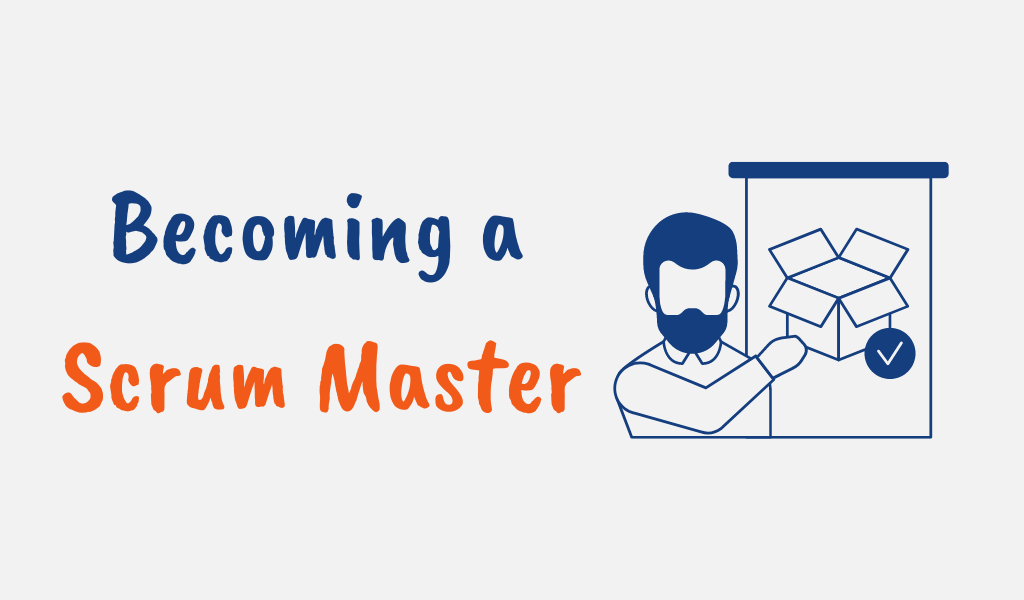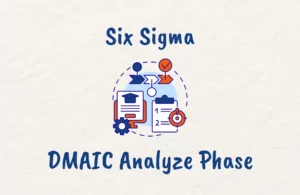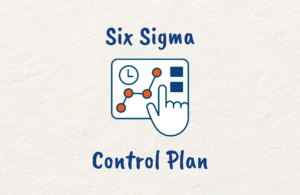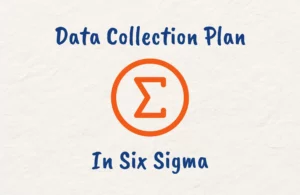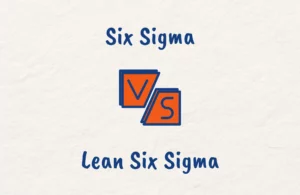Scrum is a framework that leverages Agile methodology for the development of adaptive solutions for complex problems by a small Scrum team.
The Scrum team is a cross-functional, self-organizing group of professionals that ideally should not exceed ten people and consists of developers, one Product Owner, and one Scrum Master.
The Scrum Master serves as a facilitator and coach for the Scrum team and is ultimately accountable for the team’s effectiveness.
navigating the Scrum framework. The role is not to manage the team, but to remove impediments, establish an environment where the team can be highly productive, and foster a culture of communication and collaboration.
The role extends beyond individual teams to promoting Agile principles across the organization and driving Agile transformations, thus empowering businesses to adapt swiftly, deliver value rapidly, and maintain a customer-centric approach in an ever-evolving marketplace.
Starting out as a Scrum Master seems daunting especially if you have no prior experience in the role. However, with the right effort and dedication, you can pick up the necessary skills and knowledge to become an effective Scrum Master, even without previous experience.
This guide gives you an overview of the Scrum Master role and a roadmap on how to become a Scrum Master without experience.
Understanding Scrum and Agile Methodologies
Agile is a set of principles and practices that encourage continuous improvement, flexibility, stakeholder involvement, and delivery of high-quality products. Scrum, one of the most popular Agile frameworks, provides a specific set of roles, events, and artifacts to guide project management.
Choosing Scrum as a project management approach offers several benefits. It promotes transparency, inspection, and adaptation, allowing teams to respond swiftly to changes. Scrum’s iterative nature also enables teams to deliver value incrementally, ensuring the most critical tasks are completed first.
The Scrum framework revolves around three primary roles: the Product Owner, the Scrum Master, and the Development Team.
The Product Owner manages the Product Backlog and prioritizes tasks. The Development Team works in Sprints to deliver potentially shippable increments of the product. The Scrum Master, the focus of this guide, facilitates the Scrum process and helps the team improve their practices.
What does a Scrum Master do?
The Scrum Master is a servant-leader for the Scrum team, fostering an environment where the team can be successful and ensuring the team follows Scrum principles and practices.
Their role involves removing any obstacles or blockers that may hinder the team’s progress, facilitating communication among team members, and with stakeholders, and coaching the team to become self-organizing and cross-functional.
Successful Scrum Masters possess several key characteristics and skills. They should be excellent communicators, adept at facilitating meetings and negotiations, and skilled in conflict resolution. They also need a deep understanding of Scrum and Agile practices and principles.
Furthermore, they must be committed to continuous learning and improvement, embodying the Agile philosophy themselves. A Scrum Master should also demonstrate empathy, patience, and a positive attitude, as they work closely with various team members to ensure a productive and harmonious working environment.
How to Become a Scrum Master Without Experience
As earlier iterated, while transitioning into a Scrum Master role with no prior experience may seem daunting, it’s entirely achievable with the right approach and determination. Here’s how you can make the leap:
1. Gain Relevant Scrum Knowledge
Understanding the Scrum framework and the Agile methodology is your first step. Self-education is crucial here, and you can begin by reading the official Scrum Guide, which provides a comprehensive overview of the framework, its roles, events, and artifacts.
Other resources to deepen your understanding include books by Scrum pioneers like Ken Schwaber and Jeff Sutherland, as well as articles and blogs written by Scrum practitioners sharing their experiences and insights.
2. Leverage Self-Study and Online Resources
Self-study should form the cornerstone of your learning process. The internet provides a wealth of online resources that can aid your journey.
Websites like Scrum.org, Scrum Alliance, and Agile Alliance offer helpful articles, forums, and free resources. Online learning platforms such as Coursera, Udemy, and LinkedIn Learning provide courses on Scrum and Agile methodologies.
These can give you a structured learning experience and often include quizzes and assignments that help reinforce your understanding.
3. Gain Practical Experience through Volunteering or Internships
While theoretical knowledge is important, practical experience is equally, if not more, valuable. However, gaining this experience can be a challenge if you’re starting from scratch.
One way to overcome this hurdle is by volunteering your services to non-profit organizations. Many such organizations are open to implementing Agile project management but lack the necessary expertise.
Another way to gain practical experience is through internships in companies that use Scrum. Even if the internship isn’t directly related to a Scrum Master role, working in a Scrum environment will give you firsthand experience of how the framework functions in a real-world setting.
It also gives you the opportunity to observe a Scrum Master in action, thereby providing practical insights that are hard to gain from books and courses alone.
Educational Requirements and Scrum Certifications
While there are no strict educational prerequisites to become a Scrum Master, having a foundational understanding of project management can be advantageous.
Individuals often transition into Scrum roles from fields such as IT, business management, or software development. Therefore, having a degree or experience in these areas might give you a headstart. However, Scrum values practical understanding and application of its principles over formal education.
Introduction to Scrum Certification Programs
Scrum certification programs are designed to validate your understanding and practical application of Scrum. Two widely recognized certifications include:
- Certified ScrumMaster (CSM) from Scrum Alliance. This certification confirms your understanding of Scrum values, practices, and applications.
- Professional Scrum Master (PSM) from Scrum.org. This certification is more rigorous and tests your understanding of Scrum and ability to apply it in complex, real-world situations.
Importance of Certification for Scrum Master Role
While not always mandatory, having a Scrum certification can significantly enhance your credibility and employability. It demonstrates to potential employers that you have a solid understanding of Scrum and that you’re committed to following its principles.
Furthermore, many organizations prefer, and sometimes even require, their Scrum Masters to be certified.
How to Prepare for Scrum Certification Exams
Here are some strategies to prepare for Scrum certification exams:
- Understand the Scrum Guide: The Scrum Guide is the definitive guide to Scrum and forms the basis of most questions asked in the exams.
- Take a Course: Many organizations, like Scrum.org and Scrum Alliance, offer preparatory courses for their exams.
- Practice Exams: Take advantage of the mock exams available online. These help familiarize you with the format of the exam and the types of questions asked.
- Join Study Groups: Connect with others preparing for the same exam. Study groups can provide support, insights, and additional resources.
- Rest and Review: Before the exam, get a good night’s sleep and review your notes one last time. Go into the exam relaxed and confident.
Networking and Mentorship
Networking and mentorship are critical for growth in any career. These tips can help you leverage them in your journey to becoming a Scrum Master.
The Role of Networking in Landing a Scrum Master Role
Networking can play a crucial role in your journey to becoming a Scrum Master. By connecting with experienced Scrum Masters and Agile professionals, you can gain insights into the Scrum Master role, learn from their experiences, and even discover job opportunities that may not be publicly advertised.
Endeavor to attend Agile and Scrum conferences, seminars, webinars, and meetups to expand your network.
How to Find and Connect with Scrum Mentors
Mentorship is valuable in any profession, and it’s no different for aspiring Scrum Masters. A mentor can provide personalized guidance, answer your questions, share their experiences, and even help you navigate challenges in your journey.
To find a mentor, you can:
- Reach out to experienced Scrum Masters or Agile coaches in your existing network.
- Connect with Scrum professionals on platforms like LinkedIn, expressing your interest in learning from their experiences.
- Attend Scrum or Agile events and meet potential mentors in person.
Joining Scrum or Agile User Groups and Communities
Scrum or Agile user groups and online communities can also provide support, guidance, and valuable resources. These platforms host discussions about Scrum practices, challenges, and solutions, and offer a chance to learn from a diverse set of experiences and perspectives.
Examples of such platforms include the Scrum Alliance Community and the Agile Uprising forum.
Building a Scrum Master Resume
After all said and done, to actually get the job requires you to have a resume tailored for the role. Here are some insights into crafting a compelling resume:
Highlight Relevant Skills and Experiences
Your resume should highlight your understanding of Scrum and Agile methodologies, along with any relevant experiences. If you have worked in a Scrum team in any capacity, make sure to include this in your resume.
Highlight any projects where you’ve applied Scrum practices, even if it was not in a Scrum Master role. Don’t forget to list your Scrum certification, if you have one.
Showcasing Your Agile Mindset
As a Scrum Master, your mindset is as important as your technical knowledge. Showcasing your Agile mindset which is an ability to adapt to change, your commitment to continuous improvement, and your focus on delivering value can make you stand out.
Highlight instances where you’ve demonstrated these values, whether in work projects, volunteer roles, or personal projects.
Write a Compelling Scrum Master Cover Letter
Your cover letter is your chance to tell your story and to explain why you’re passionate about becoming a Scrum Master. Here are some tips:
- Tailor Your Letter: Make sure your cover letter is tailored for each application. Address the specific requirements of the job posting.
- Tell a Story: Use your cover letter to tell a story that your resume can’t. Maybe it’s about a project where you first used Scrum, or how you overcame a problem using an Agile approach.
- Show Passion: Express your passion for Scrum and Agile methodologies, and your eagerness to facilitate productive, happy teams.
- Proofread: A cover letter with typos or grammatical errors can leave a poor impression. Ensure your cover letter is polished and professional.
Preparing for Scrum Master Interviews
After doing all the hard work and putting your resume out there, you need to be prepared for interviews for the Scrum master role.
Typical Scrum Master Interview Questions and How to Answer Them
During the interview, you’ll likely be asked questions to assess your understanding of Scrum and your problem-solving abilities. Typical questions might include:
- “What are the roles in a Scrum team and their responsibilities?”
- “Can you describe a challenging situation you faced on a project and how you resolved it using the Scrum framework?”
- “What does an ‘Agile mindset’ mean to you, and how have you demonstrated it?”
When answering, be specific and clear. Use real examples to illustrate your points and show how you’ve applied Scrum principles in practice.
How to Demonstrate Your Scrum Knowledge and Agile Mindset in an Interview
Remember, an interview is not just about answering questions correctly; it’s about demonstrating your passion for Agile project management and how you embody the Agile mindset.
Talk about specific instances where you’ve embraced change, prioritized customer satisfaction, or led a team to solve complex problems using Scrum.
Continuous Learning and Skill Development in Scrum
Continuous learning is a key characteristic of the Agile mindset. As the field of Agile project management evolves, so should your skills and knowledge. Staying updated with the latest practices, techniques, and trends will help you become a more effective Scrum Master.
Resources for Ongoing Education
Several resources can support your ongoing learning journey. These include:
- Books: There are many books on Scrum and Agile methodologies, written by leading experts in the field.
- Courses: Online platforms like Coursera, Udemy, and LinkedIn Learning frequently update their course offerings.
- Seminars and Conferences: These events provide opportunities to learn from experienced practitioners and network with other Agile professionals.
The Role of Feedback in Improving as a Scrum Master
Feedback, both from your team and from other Scrum Masters, is vital for your growth. Regularly seek feedback and be open to it. Reflect on this feedback and use it as a basis for continuous improvement.
Conclusion
Becoming a Scrum Master with no prior experience is a journey that requires dedication, learning, and practice. Start with understanding the Scrum framework and principles, then gain practical experience through volunteering or internships.
Pursue a Scrum certification to validate your knowledge and enhance your credibility. Use networking and mentorship for guidance and job opportunities. Showcase your skills, experiences, and Agile mindset in your resume and cover letter, and prepare thoroughly for interviews.
FAQs
Can you get a Scrum Master job without Certification?
Yes, it’s possible to land a Scrum Master job without certification. However, a Scrum certification can enhance credibility and job prospects. Real-world experience, understanding of Scrum principles, and Agile mindset are essential. Networking and continuous learning can also increase job opportunities.
Is Scrum Master a Good Job?
Yes, being a Scrum Master is a rewarding job. It offers opportunities for growth, learning, and leadership. Scrum Masters play a critical role in project success, facilitating collaboration and promoting Agile principles. The role also typically carries a competitive salary and is in high demand.
How Long Does it Take to Become a Scrum Master?
Becoming a Scrum Master varies based on prior experience and learning pace. Studying Scrum principles can take a few weeks. A certification, like CSM or PSM, usually involves a 2-day course plus exam time. Gaining practical experience can take several months to a year.
Is Scrum Master a Stressful Job?
A Scrum Master role can be stressful due to responsibilities like managing timelines, resolving conflicts, and handling team dynamics. However, stress can be managed effectively with good communication, problem-solving skills, and a strong understanding of Scrum principles. Self-care and work-life balance are also important.

